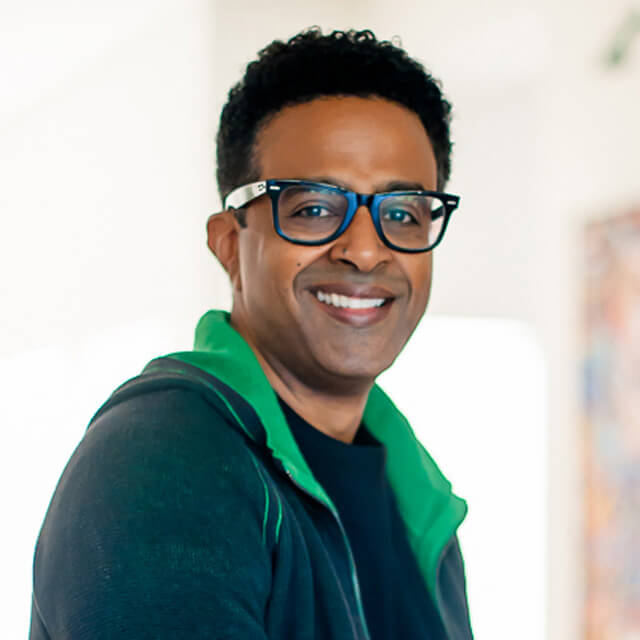Yared Akalou
February 13, 2015

Yared Akalou (MDes 2006) recently founded Alcove Group, a startup that just launched its first product, a laptop case for the digital nomad. On the occasion of Alcove’s launch, we spoke with him about what brought him to ID and the path that followed.
What brought you to the Institute of Design?
I was on one of the largest projects at Accenture, a $120 million “Technician of the Future” project for SBC. We developed ground-up software to automate and integrate the technician’s workflow and processes into one ruggedized laptop that could be docked in their truck and synced to the central office. After two years, we ran a pilot program in the northeast. In the field, they relayed, “I’m not taking that thing out of the truck, it’s too heavy.” Two years of automating manual processes and we missed one key aspect, the human factors of the physical product. That was the first moment of truth for me that begged the question: why was something so basic and fundamental to the success of our project overlooked?
What stands out about your professional path since leaving ID?
After ID, I landed a fantastic opportunity to build a user experience design group from scratch at a healthcare technology company, BD, where I worked remotely out of Houston. I was the second employee. A fellow alumna, Rinku Gajera, was the first.
At BD, I received a patent on a user interface system that displays a timeline of when a patient receives an infusion to ensure proper administration of medication. I also led the first contextual research initiative to include a repeatable research methodology which is now integrated into the company’s global development process. I was equally proud of both successful launches and projects that were canceled when our prototyping research identified glaring usability issues.
What was most impactful about your experience at ID? (A specific moment, professor, course, etc.)
I must say I feel very special to have been taught by the masters—Farnstrom, Prygrocki, Owens, Grimes. Each of them uniquely impacted my experience.
Midway through my program, I lost my father due to complications of diabetes. Observing his experience gave me deep empathy for everyone I saw afterwards at a hospital. I recall very vividly during recruitID stacks of resumes overflowing in folders of high profile design shops and companies. One folder only had a handful, it was Mayo Clinic. They were piloting an innovation program that brought together MBAs, MDes, and Pharmacy candidates. This was another moment of truth for me—what could design do to deliver a better patient experience based on what I saw my father go through? My classmate, Laate Olukoton, and I were hired as design strategists and spent the summer in Rochester, Minneapolis laying the foundation to what is now the Mayo Clinic Center for Innovation.
How do you imagine design and the designer evolving over the next decade?
When I graduated in 2006, user experience design was one of the three most in-demand roles next to developers and data scientists. Technology is transforming so many aspects about our society and how we work that it’s difficult to predict what skills will be in demand in the next decade. However, I believe designers will continue to play important roles in business. I also predict designers increasing involvement in government and policy making. Two ID alumni were White House Innovation fellows!
What advice would you give our current and incoming students?
Begin with the end in mind and outline a plan for what you think you need to accomplish in order to achieve those goals. Find ways to test those ideas early so you can assess and continue down that path or change course. Use the tools and methods you are learning at ID to prototype and design your future career.
Build meaningful relationships. The network you foster and build will remain with you well past ID.
Prepare for work after graduation as short sprints rather than long marathons. Work today is shifting from full-time employment (tenured-based) to short, project based stints. Get comfortable being uncomfortable with uncertainty and adapt an entrepreneur’s mindset. You’ll be better prepared for the future of work.
Don’t forget to have fun along the way.